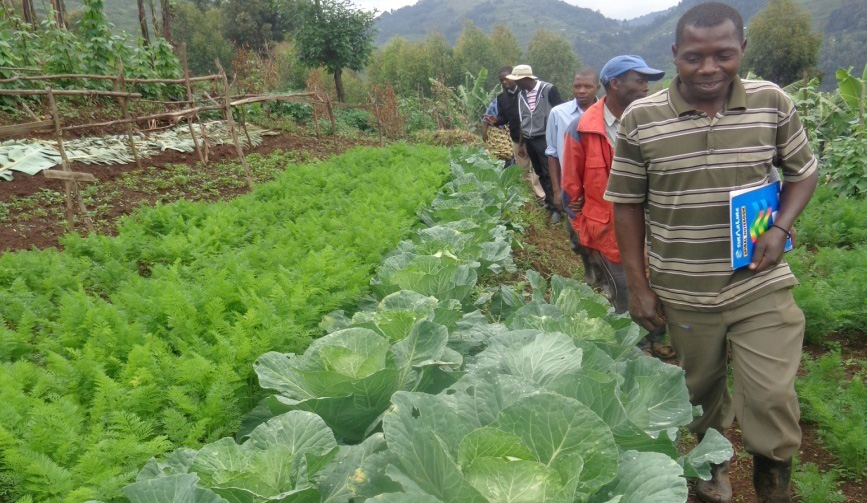
CARITAS promotes sustainable agriculture, through provision of advisory services and inputs for selected traditional foods, cash crops and livestock. This program seeks to ensure that households have enough food to feed their families until the next harvest, more profitable farm income, promote environmental stewardship, and enhance quality of life for the farmers' families and communities. When sustainably practiced, agriculture can nourish people and support rural livelihoods. It can also protect soils and water supplies as well as help communities cope with climate change, and other global challenges.
Caritas Kabale diocese under Sustainable Agriculture Programme (SAP) is thus implementing projects aimed at improving the livelihoods of the people of Kabale diocese. For the last five years, Caritas Kabale Diocese, through SAP has made tremendous achievements in Kabale Diocese including the following;
- 45,240 Smallholder farmers' families in Rubanda, Kisoro, Kanungu and Rukungiri districts have improved food security and income from crop and animal production in a healthy environment as a result of community agriculture and nutrition interventions.
- 46,840 Smallholder farmers' families in Kabale, Rubanda,Kisoro, Kanungu and Rukungiri districts have achieved reduced malnutrition especially for children and women of reproductive age.
- 1,800 Small holder farmers in Ruhija and Nyamweru sub counties in Rubanda district achieved diversified and improved crop yields and applied sustainable environmental management practice on their fields.
- 1,800 Small holder farmers in Ruhija and Nyamweru sub counties in Rubanda district increased stock numbers and productivity of small Livestock integrated in their cropping systems.
- 1,800 Small holder farmers in Ruhija and Nyamweru sub counties in Rubanda have stable, empowered families and farmer groups managing their socio-economic and health concerns with minimal external support.
- At least 4,000 acres of the degraded land was restored and rehabilitated for improved agricultural production and environmental protection in Buhara, Maziba, Butanda and Rubaya sub counties in Kabale District.
- 300 water tanks with of the capacity 6000 litres were constructed and thus at least 7,800,000 litres of Rain water managed and used for farming, health and sanitation concerns.
- In at least 1,600 households, gender relations were improved and families live harmoniously, plan together, make important family decisions together and have participatory planning at family level.
